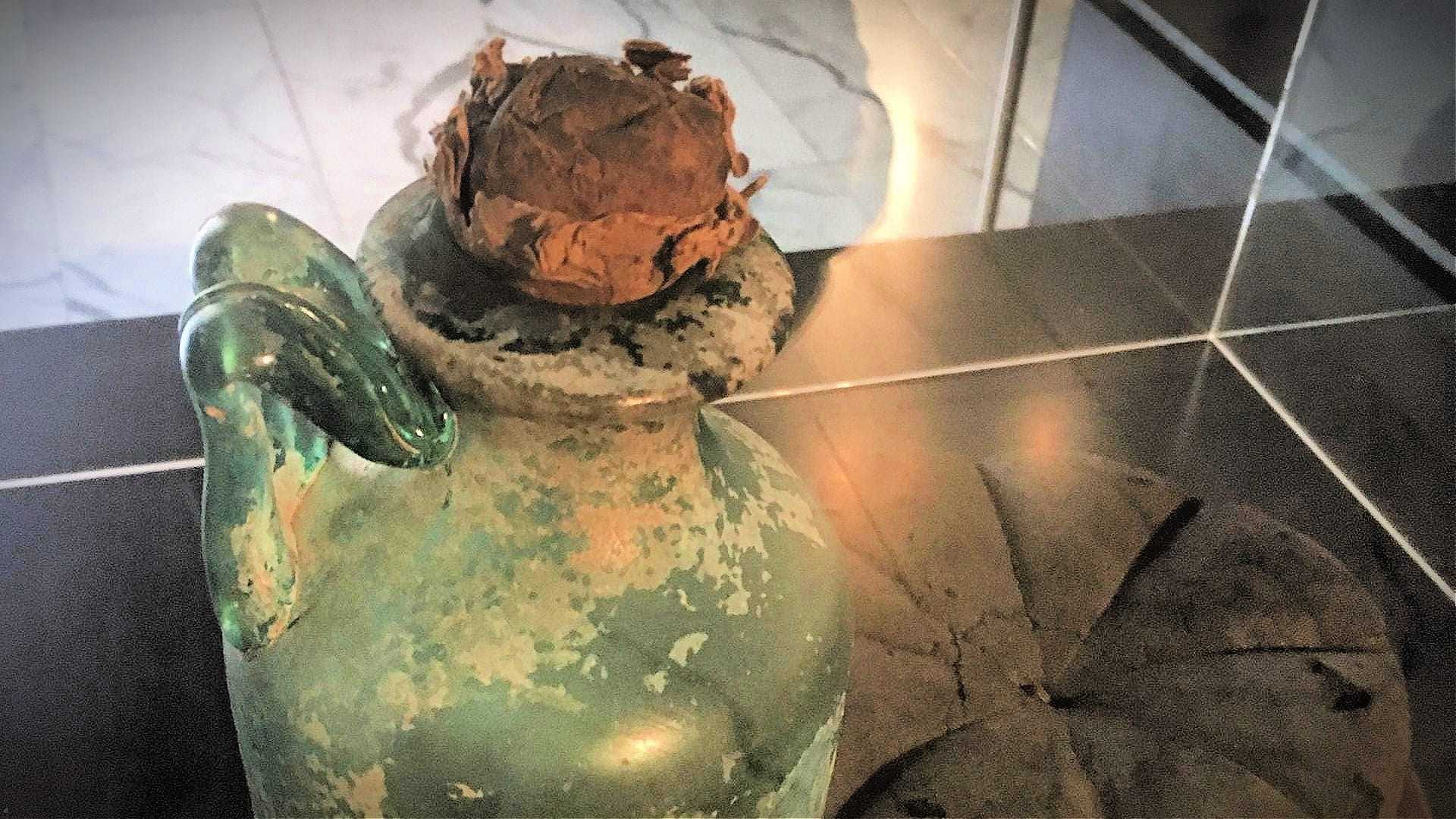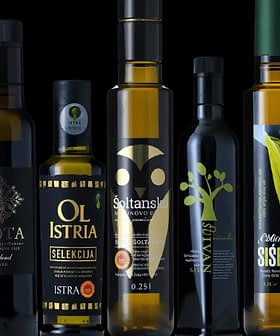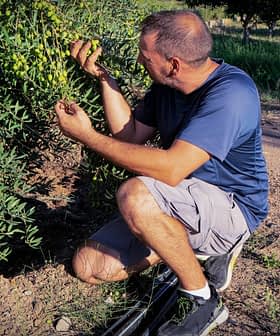 8.0K reads
8.0K readsWorld
New Insights Into the World’s Oldest Bottle of Olive Oil

New research has confirmed that a 2,000-year-old bottle found in Herculaneum contains olive oil and has revealed the molecular changes in the oil over time. Magnetic resonance and mass spectrophotometry testing, as well as radiocarbon dating, confirmed the age of the oil, which showed chemical modifications due to high temperatures and long-term storage.
New research has confirmed that a 2,000-year-old bottle found in the ancient Roman town of Herculaneum, near modern-day Naples, is olive oil and has shed light on the molecular transformation of the oil over the past two millennia.
“We are very satisfied with the insights obtained [from the studies],” said Raffaele Sacchi, the chair of the food science and technology unit of the University of Naples Federico II department of agriscience (DIA).
Our study strikingly highlights the molecular evolution of olive oil through an almost 2,000-year-long storage period.
Working with colleagues at the National Research Council and the University of Campania Luigi Vanvitelli, Sacchi came to this conclusion after carrying out magnetic resonance and mass spectrophotometry testing on the bottle, as well as radiocarbon dating the organic residue.

Photo by Raffaele Sacchi
“We have been able to unequivocally confirm that what we have in our hand is the most ancient olive oil residue recovered, and currently exposed, in a significant amount, as it dates back to 79 A.D.,” Sacchi said. “Moreover, our study strikingly highlights the molecular evolution of olive oil through an almost 2,000-year-long storage period.”
See Also:Scientists Find Earliest Evidence of Olive Oil in Central EuropeDue to both the high temperatures caused by the eruption of Mount Vesuvius in 79 A.D. and an almost two-millennia storage period in uncontrolled conditions, the remains of the oil still bear the traces of the chemical modifications typical of altered dietary fats.
“In fact, very little of the molecules commonly found in olive oil survived,” Sacchi said. “The triglycerides, which represent 98 percent of the oil, broke down into the constituent fatty acids; the unsaturated fatty acids are completely oxidized, generating hydroxy acids, which, in turn, with a slow kinetics, reacted with each other forming condensation products, estolides, which have never been observed before in conventional processes of natural alteration of olive oil.”
Furthermore, the olive oil residue produced a number of different volatile substances, which are the same as those found in highly rancid oil and formed as the result of the decomposition of oleic and linoleic acids.
The saturated fatty acids and phytosterols profiles also made it possible to establish with certainty that the residue found in the bottle does not contain animal fat, which was widely used by the population of the time, and that it is unequivocally olive oil.
“The relative enrichment of saturated fatty acids and the formation of estolides have contributed to solidify the olive oil in situ,” Sacchi said, clarifying that the oil is leaning to one side, because the bottle laid in an inclined position from the eruption until its excavation.
“The identification of the nature of this archaeological bottle of olive oil gives us irrefutable proof of the importance this product had in the daily diet of the populations of the Mediterranean basin, in particular to the ancient Romans in Campania Felix,” he said.
“Also, this has a major impact on culture and on the image of Italian olive oil, since we obtained a ‘certified’ glass bottle of olive oil stored for as many as 2,000 years,” Sacchi added, clarifying that the oil most likely had solidified because the bottle laid in an inclined position.









